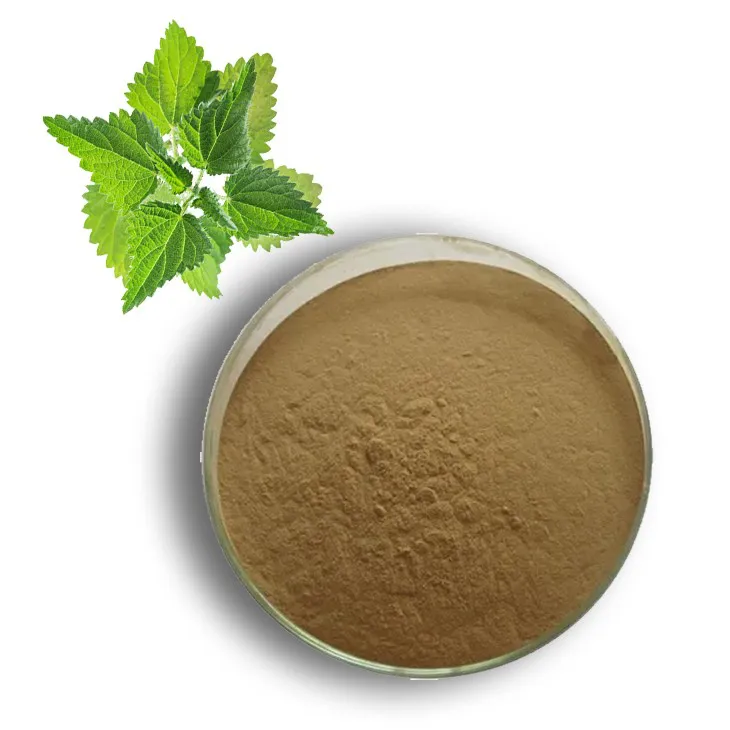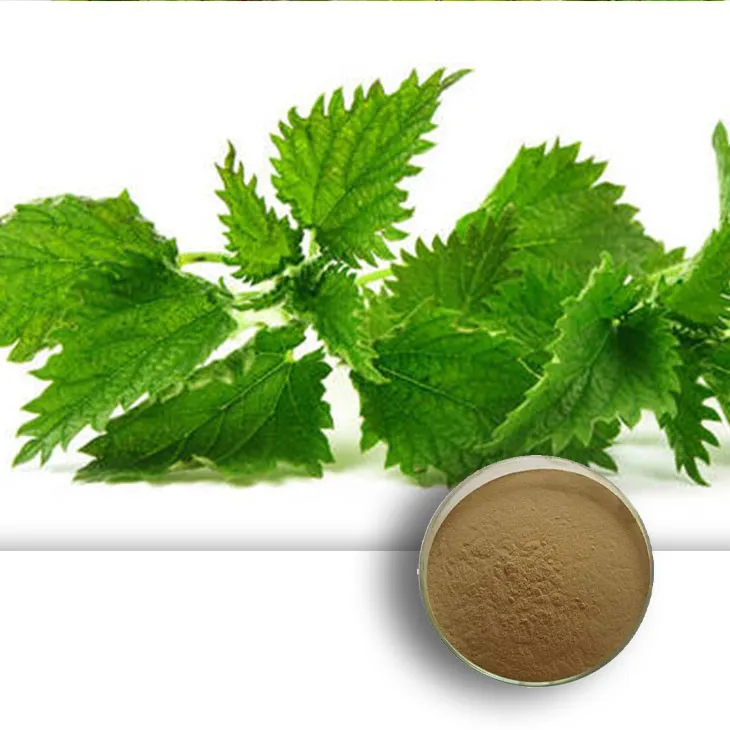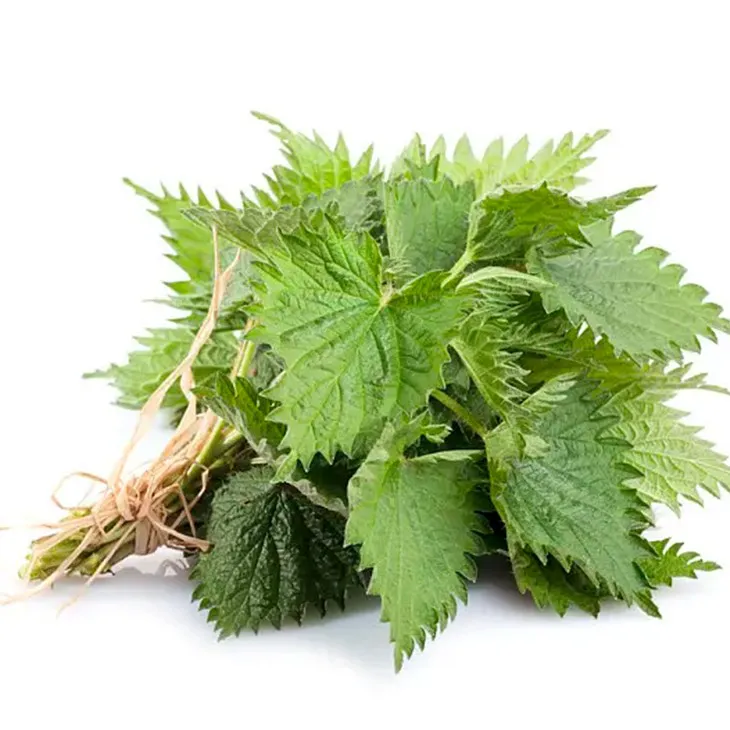- 0086-571-85302990
- sales@greenskybio.com
Benefits of Nettle Leaf Extract in Cattle Feed.
2024-11-13

1. Introduction
In the world of cattle farming, the search for natural and effective additives to improve the health and productivity of cattle is an ongoing process. Nettle leaf extract has emerged as a promising candidate for inclusion in cattle feed. This article will explore the various benefits that Nettle leaf extract can bring to cattle.

2. Nutritional Composition of Nettle leaf extract
Nettle leaf extract is rich in a variety of bioactive compounds that contribute significantly to the nutritional profile of cattle feed.
2.1 Proteins and Amino Acids
The presence of proteins and amino acids in nettle leaf extract is of great importance. Proteins are the building blocks of muscle tissue in cattle. Amino acids, which are the components of proteins, play a crucial role in various physiological processes. For example, lysine and methionine are essential amino acids that are necessary for proper growth and development. When cattle consume nettle leaf extract, they are supplied with these essential nutrients, which can enhance their muscle development. This is particularly beneficial for young and growing cattle, as it can lead to better body conformation and increased meat production in the long run.
2.2 Essential Fatty Acids
Another important component of nettle leaf extract is essential fatty acids. These fatty acids are not synthesized by the body of cattle and must be obtained from their diet. Essential fatty acids play a role in maintaining healthy cell membranes, improving immune function, and promoting overall growth. They also contribute to the quality of meat produced by cattle. For instance, omega - 3 fatty acids, which may be present in nettle leaf extract, have been associated with improved meat tenderness and a more favorable fatty acid profile in the meat, which can be appealing to consumers.

3. Anti - Inflammatory Effects
Inflammation in the digestive tract is a common problem in cattle, which can be caused by a variety of factors such as sudden diet changes, infections, or stress. Nettle leaf extract has shown promising anti - inflammatory effects.
3.1 Reducing Digestive Tract Inflammation
The anti - inflammatory properties of nettle leaf extract can help soothe the inflamed tissues in the digestive tract of cattle. This is important because inflammation in the digestive system can lead to reduced nutrient absorption. When the digestive tract is inflamed, the cells lining the tract may not be able to function optimally in absorbing nutrients from the feed. By reducing inflammation, nettle leaf extract can improve the efficiency of nutrient absorption, ensuring that cattle get the maximum benefit from their feed. This can lead to better growth rates, improved overall health, and reduced susceptibility to other diseases that may be exacerbated by poor nutrient absorption.

4. Nettle Leaf Extract as a Natural Dewormer
Internal parasites are a significant concern in cattle farming as they can cause a range of problems, including reduced growth, poor feed conversion, and decreased immunity. Nettle leaf extract can act as a natural dewormer.
4.1 Controlling Internal Parasites
Some of the bioactive compounds in nettle leaf extract have properties that can help control internal parasites in cattle. These compounds may interfere with the life cycle of the parasites or make the environment in the digestive tract less favorable for their survival. By reducing the parasite load in the cattle's body, nettle leaf extract can improve the overall well - being of the animals. Cattle that are free from heavy parasite infestations are more likely to convert their feed efficiently, as they are not losing nutrients to the parasites. This can lead to significant cost savings on feed, as less feed is wasted due to parasite - related inefficiencies in nutrient utilization.
4.2 Impact on Feed Conversion Ratios
When nettle leaf extract helps control internal parasites, it has a positive impact on feed conversion ratios. Feed conversion ratio (FCR) is a measure of how efficiently an animal converts feed into body mass. A lower FCR indicates better efficiency. By reducing the negative impact of parasites on the cattle's digestive system and nutrient absorption, nettle leaf extract can improve the FCR. This means that cattle can gain more weight with less feed, which is not only beneficial for the farmers' bottom line but also more sustainable in terms of feed resource utilization.
5. Other Potential Benefits
In addition to the above - mentioned benefits, nettle leaf extract may have other positive effects on cattle.
- It may enhance the immune system of cattle. The bioactive compounds in the extract could stimulate the immune cells in the body, making the cattle more resistant to diseases. This could reduce the need for antibiotics and other medications, which is a growing concern in modern livestock farming due to issues such as antibiotic resistance.
- Nettle leaf extract may also have antioxidant properties. Antioxidants can protect the cells of cattle from oxidative damage caused by free radicals. This can contribute to the long - term health of the animals and potentially extend their productive lifespan.
6. Considerations for Incorporating Nettle Leaf Extract into Cattle Feed
While nettle leaf extract offers many potential benefits, there are also some considerations when incorporating it into cattle feed.
- Dosage: Determining the appropriate dosage of nettle leaf extract is crucial. Too little may not provide the desired effects, while too much could potentially cause adverse reactions. Research is still ongoing to establish the optimal dosage levels for different types of cattle and production systems.
- Quality Control: Ensuring the quality of the nettle leaf extract is essential. The extract should be free from contaminants such as pesticides, heavy metals, and other harmful substances. Farmers should source the extract from reliable suppliers who follow good manufacturing practices.
- Compatibility with Other Feed Ingredients: Nettle leaf extract needs to be compatible with other feed ingredients. It should not interact negatively with other nutrients or additives in the feed. For example, it should not interfere with the absorption of vitamins or minerals already present in the feed.
7. Conclusion
In conclusion, nettle leaf extract has numerous potential benefits when used in cattle feed. Its nutritional components, anti - inflammatory effects, and role as a natural dewormer make it an attractive option for improving the health and productivity of cattle. However, further research is needed to fully understand its mechanisms of action and to optimize its use in different cattle farming scenarios. With proper consideration of dosage, quality control, and compatibility with other feed ingredients, nettle leaf extract could play an important role in the future of sustainable cattle farming.
FAQ:
1. What are the main bioactive compounds in nettle leaf extract?
As mentioned in the passage, the main bioactive compounds in nettle leaf extract include proteins, amino acids, and essential fatty acids.
2. How does nettle leaf extract contribute to muscle development in cattle?
The proteins, amino acids, and essential fatty acids in nettle leaf extract play a role in contributing to muscle development in cattle.
3. Why is the anti - inflammatory effect of nettle leaf extract important for cattle?
The anti - inflammatory effect of nettle leaf extract is important because cattle often experience inflammation in the digestive tract due to factors like diet changes or infections, and this extract can help reduce such inflammation.
4. How does nettle leaf extract act as a natural dewormer?
The passage doesn't specifically detail how nettle leaf extract acts as a natural dewormer. However, it is known that it helps control internal parasites, which is the way it functions as a dewormer.
5. How can nettle leaf extract improve feed conversion ratios?
By helping to control internal parasites, nettle leaf extract improves the overall well - being of the cattle. This can lead to improved feed conversion ratios as the cattle are in better health and can more efficiently convert feed into growth.
Related literature
- The Role of Nettle (Urtica dioica) in Animal Nutrition"
- "Beneficial Effects of Nettle Leaf Extract in Livestock Feeding: A Review"
- ▶ Hesperidin
- ▶ citrus bioflavonoids
- ▶ plant extract
- ▶ lycopene
- ▶ Diosmin
- ▶ Grape seed extract
- ▶ Sea buckthorn Juice Powder
- ▶ Beetroot powder
- ▶ Hops Extract
- ▶ Artichoke Extract
- ▶ Reishi mushroom extract
- ▶ Astaxanthin
- ▶ Green Tea Extract
- ▶ Curcumin Extract
- ▶ Horse Chestnut Extract
- ▶ Other Problems
- ▶ Boswellia Serrata Extract
- ▶ Resveratrol Extract
- ▶ Marigold Extract
- ▶ Grape Leaf Extract
- ▶ blog3
- ▶ blog4
- ▶ blog5
-
Organic Tongkat Ali extract powder factory.
2024-11-13
-
How to make powder with ashwagandha extract.
2024-11-13
-
Rosehip extract manufacturers from China.
2024-11-13
-
The best cat's claw extract in nature.
2024-11-13
-
Chinese Dandelion Leaf Extract Suppliers.
2024-11-13
-
Aminolevulinic acid
2024-11-13
-
Mangosteen extract powder
2024-11-13
-
Mulberry Extract
2024-11-13
-
Hericium erinaceus extract powder
2024-11-13
-
Aguaje Extract
2024-11-13
-
Elderberry Extract
2024-11-13
-
Moringa powder
2024-11-13
-
Tamarind extract powder
2024-11-13
-
Nutmeg Extract
2024-11-13
-
Plantain extract
2024-11-13





















